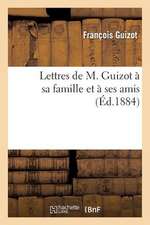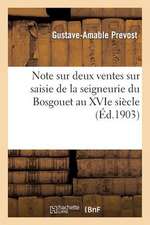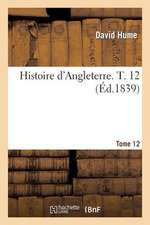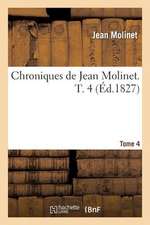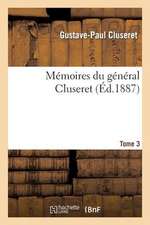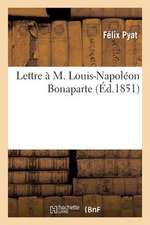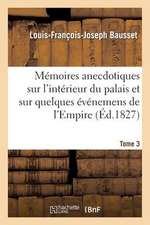At the First Table: Food and Social Identity in Early Modern Spain: Early Modern Cultural Studies
Autor Jodi Campbellen Limba Engleză Paperback – 31 ian 2017
Research on European food culture has expanded substantially in recent years, telling us more about food preparation, ingredients, feasting and fasting rituals, and the social and cultural connotations of food.
At the First Table demonstrates the ways in which early modern Spaniards used food as a mechanism for the performance of social identity. People perceived themselves and others as belonging to clearly defined categories of gender, status, age, occupation, and religion, and each of these categories carried certain assumptions about proper behavior and appropriate relationships with others. Food choices and dining customs were effective and visible ways of displaying these behaviors in the choreography of everyday life. In contexts from funerals to festivals to their treatment of the poor, Spaniards used food to display their wealth, social connections, religious affiliation, regional heritage, and membership in various groups and institutions and to reinforce perceptions of difference.
Research on European food culture has been based largely on studies of England, France, and Italy, but more locally on Spain. Jodi Campbell combines these studies with original research in household accounts, university and monastic records, and municipal regulations to provide a broad overview of Spanish food customs and to demonstrate their connections to identity and social change in the sixteenth and seventeenth centuries.
At the First Table demonstrates the ways in which early modern Spaniards used food as a mechanism for the performance of social identity. People perceived themselves and others as belonging to clearly defined categories of gender, status, age, occupation, and religion, and each of these categories carried certain assumptions about proper behavior and appropriate relationships with others. Food choices and dining customs were effective and visible ways of displaying these behaviors in the choreography of everyday life. In contexts from funerals to festivals to their treatment of the poor, Spaniards used food to display their wealth, social connections, religious affiliation, regional heritage, and membership in various groups and institutions and to reinforce perceptions of difference.
Research on European food culture has been based largely on studies of England, France, and Italy, but more locally on Spain. Jodi Campbell combines these studies with original research in household accounts, university and monastic records, and municipal regulations to provide a broad overview of Spanish food customs and to demonstrate their connections to identity and social change in the sixteenth and seventeenth centuries.
Preț: 215.02 lei
Nou
Puncte Express: 323
Preț estimativ în valută:
41.15€ • 42.80$ • 34.44£
41.15€ • 42.80$ • 34.44£
Carte tipărită la comandă
Livrare economică 15-29 martie
Preluare comenzi: 021 569.72.76
Specificații
ISBN-13: 9780803290815
ISBN-10: 0803290810
Pagini: 252
Ilustrații: Index
Dimensiuni: 152 x 229 x 15 mm
Greutate: 0.37 kg
Editura: Nebraska
Colecția University of Nebraska Press
Seria Early Modern Cultural Studies
Locul publicării:United States
ISBN-10: 0803290810
Pagini: 252
Ilustrații: Index
Dimensiuni: 152 x 229 x 15 mm
Greutate: 0.37 kg
Editura: Nebraska
Colecția University of Nebraska Press
Seria Early Modern Cultural Studies
Locul publicării:United States
Notă biografică
Jodi Campbell is an associate professor of European history at Texas Christian University. She is the author of Monarchy, Political Culture, and Drama in Seventeenth-Century Madrid: Theater of Negotiation and coeditor of Women in Port: Gendering Communities, Economies, and Social Networks in Atlantic Port Cities, 1500–1800.
Cuprins
Acknowledgments
Introduction
1. Basic Food Practices and Beliefs
2. Social Groups and Collective Identity
3. Status and Change
4. Vice and Virtue, Body and Soul
Conclusion
Notes
Glossary
Bibliography
Index
Introduction
1. Basic Food Practices and Beliefs
2. Social Groups and Collective Identity
3. Status and Change
4. Vice and Virtue, Body and Soul
Conclusion
Notes
Glossary
Bibliography
Index
Recenzii
"This book will make you hungry, but it also provides a rich, nuanced connection between food and a surprising variety of other social and cultural issues in early modern Spain. Campbell's analysis of food illuminates the changing role of the nobility, religious difference and conflict, the growing influence of the urban sphere, gender, and changing attitudes toward poverty and the poor. Well written and clearly organized, the book includes an extensive bibliography of recent Spanish-language scholarship and will be of use to scholars in a wide variety of fields. In paperback, affordable, and interesting, At the First Table's focus on food and identity would also work well to introduce undergraduate students to the rich complexities of early modern Spanish culture and daily life."—Grace E. Coolidge, Renaissance Quarterly
"At the First Table is the only book of its kind in English, and, as such, provides an important foundation for the study of food and foodways in early modern Spain."—Allyson M. Poska, European History Quarterly
"This excellent work of scholarship, the fruit of much research in the National Historical Archive of Spain and the Biblioteca Nacional, should be acquired by university libraries, particularly those with strong history collections."—D. C. Kierdorf, CHOICE
"At the First Table is an immensely useful handbook that shows clearly how food formed part of the web of connections and divisions that structured this world."—Rebecca Earle, Journal of Interdisciplinary History
"The Spanish food cultures that Campbell outlines contain familiar elements of Mediterranean and Europe-wide food cultures while emphasizing the particularities of Spain where they arise. Additionally, she supplements her own primary-source research with the work of scholars publishing in Spanish and Catalan to produce a valuable and highly accessible synthesis of scholarship that has not previously been available to an anglophone audience. With this book, Campbell has given Spain a seat at the table, and guests at that meal will find both comfort in the familiar and enjoyment in the new."—Marie A. Kelleher, Bulletin of the Comediantes
“A phenomenal book. . . . Beautifully written and organized, and meticulously researched with a broad range of primary and secondary sources. There is nothing like it in English.”—Ken Albala, professor of history and the director of the Food Studies Program at the University of the Pacific and the author of Food in Early Modern Europe























